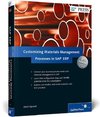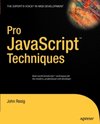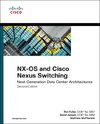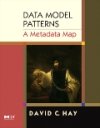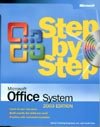
-
 Anglický jazyk
Anglický jazyk
Functional languages
Autor: Source: Wikipedia
Source: Wikipedia. Pages: 125. Chapters: Lisp, Logo, ML, APL, Common Lisp, Mercury, Erlang, J, REBOL, Mathematica, XSLT, Miranda, Standard ML, Curl, Maple, SISAL, Unlambda, Magma computer algebra system, Objective Caml, COWSEL, Clean, Haskell, Falcon, Quark... Viac o knihe
Na objednávku, dodanie 2-4 týždne
26.46 €
bežná cena: 29.40 €
O knihe
Source: Wikipedia. Pages: 125. Chapters: Lisp, Logo, ML, APL, Common Lisp, Mercury, Erlang, J, REBOL, Mathematica, XSLT, Miranda, Standard ML, Curl, Maple, SISAL, Unlambda, Magma computer algebra system, Objective Caml, COWSEL, Clean, Haskell, Falcon, Quark Framework, Scala, F Sharp, Qi, XQuery, ATS, EuLisp, Clojure, POP-2, Rust, Cat, Refal, NIL, Pure, NewLISP, EXSLT, Programming Computable Functions, Epigram, Claire, Joy, BitC, Hartmann pipeline, Arc, ISWIM, Coq, Interlisp, Lout, Atom, *Lisp, LispWorks, MDL, Allegro Common Lisp, Agda, TXL, Game Oriented Assembly Lisp, Frenetic, MultiLisp, Hume, Portable Standard Lisp, Charity, Macintosh Common Lisp, IMTEK Mathematica Supplement, OPS5, Escher, Hope, Adenine, SASL, FPr, Mudlle, Cayenne, Kite, Template Haskell, Timber, A Sharp, Compcert, Id, Goo, Flow Java, Fly, Lazy ML, Gofer, Orwell, NESL, L programming language, NPL, Rex, Opal, Bird-Meertens Formalism, Arbol, Dependent ML, Bean Sheet, OBJ3, Pict, BBN LISP, Eager Haskell, OBJ2. Excerpt: Common Lisp, commonly abbreviated CL, is a dialect of the Lisp programming language, published in ANSI standard document ANSI INCITS 226-1994 (R2004), (formerly X3.226-1994 (R1999)). From the ANSI Common Lisp standard the Common Lisp HyperSpec has been derived for use with web browsers. Common Lisp was developed to standardize the divergent variants of Lisp (though mainly the MacLisp variants) which predated it, thus it is not an implementation but rather a language specification. Several implementations of the Common Lisp standard are available, including free and open source software and proprietary products. Common Lisp is a general-purpose, multi-paradigm programming language. It supports a combination of procedural, functional, and object-oriented programming paradigms. As a dynamic programming language, it facilitates evolutionary and incremental software development, with iterative compilation into efficient run-time programs. It also supports optional type annotation and casting, which can be added as necessary at the later profiling and optimization stages, to permit the compiler to generate more efficient code. For instance, fixnum can hold an unboxed integer in a range supported by the hardware and implementation, permitting more efficient arithmetic than on big integers or arbitrary precision types. Common Lisp includes CLOS, an object system that supports multimethods and method combinations. It is extensible through standard features such as Lisp macros (compile-time code rearrangement accomplished by the program itself) and reader macros (extension of syntax to give special meaning to characters reserved for users for this purpose). Though Common Lisp is not as popular as some non-Lisp languages, many of its features have made their way into other, more widely used programming languages and systems. (See Greenspun's Tenth Rule.) Common Lisp is a dialect of Lisp; it uses S-expressions to denote both code and data structure. Function and macro calls are
- Vydavateľstvo: Books LLC, Reference Series
- Rok vydania: 2020
- Formát: Paperback
- Rozmer: 246 x 189 mm
- Jazyk: Anglický jazyk
- ISBN: 9781157599166
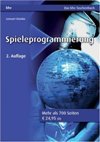
 Nemecký jazyk
Nemecký jazyk 
